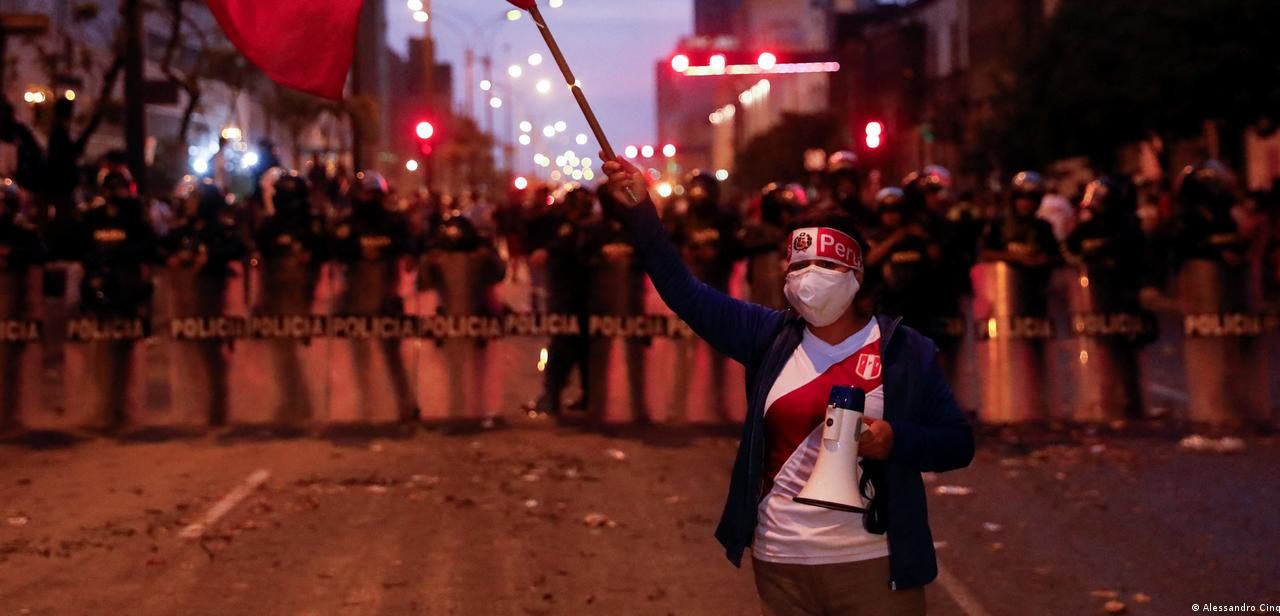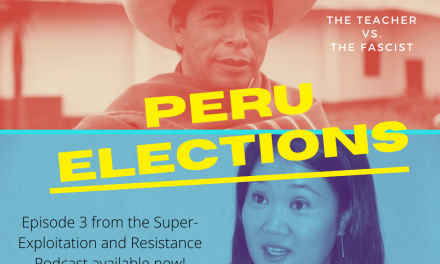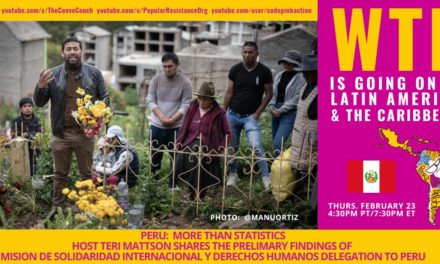By: Jackie McVickar
On December 6, Cristina Fernández de Kirchner, Argentina’s vice-president, and former president, was sentenced to 6 years in jail in connection to fraud. The next day, Peruvian President Pedro Castillo was impeached and arrested for “rebellion” after he attempted to dissolve congress.
Supporters of the leftist political leaders say they are both victims of “lawfare”, the abuse of legal instruments to achieve political gains through tactics such as false accusations, fraudulent procedural delays, or convictions for uncorroborated facts, that merges with the mainstream media to create a strategy to dispute power.
Former Argentinian federal prosecutor and now criminal defense lawyer Aníbal Ibarra, agrees that political prosecution through the judiciary, “is a tool to overcome opponents in an attempt to destroy a political group.”
Ibarra, also the former Mayor of Buenos Aires, was a guest on the December 15 episode of “WTF is going on in Latin America.” The program examined the use of lawfare in the Fernández de Kirchner and Castillo cases, but Ibarra clearly notes, “This is not something that is only happening in Argentina, it is happening across the region.”
Daniela Ortiz is an artist and anti-racist militant based in Urubamba, Peru. During the program, she warns that while lawfare is perceived as a tool for a soft coup, it provides, “a legal path to justify military intervention and state repression in the streets.” Since Pedro Castillo was arrested and deposed as president by Dina Boluarte, at least twenty six Peruvian protesters have been killed by state security forces.
According to Ortiz, since coming to power a year and a half ago, racialized former teacher, farmer and union organizer Pedro Castro has been targeted by the elite and the Fujimorist party, Popular Force, led by Keiko Fujimori, daughter of former dictator Alberto Fujimori, who use the law and racism in the media to portray him as incompetent and corrupt. She notes that supporters of Pedro Castillo have had malicious charges filed against them by big law firms in Lima to delegitimize his surprise win which for the first time in Peru’s history resulted in Quechua leaders giving political speeches in their Indigenous language in parliament.
Ortiz says the strategic use of “corruption” creates the grounds for lawfare to be successful. “Media starts talking about corruption in order to change the public narrative.”
Ibarra agrees. He points to how an anti-corruption discourse is strategically used to discredit opponents and justify legal prosecution. “They start to talk about corruption, and how we, as a country, have ‘committed internationally’ to act against corruption and we need to let ‘justice’ prevail. But what we have instead is a political decision behind persecuting opponents.”
Ibarra adds, “This is the context you need to pay attention to when you hear about cases, and they talk about corruption. This is part of the strategy of persecution.”
**
Raul Burbano, Program Director of Common Frontiers in Toronto and co-host of the program, said that the use of the law creates confusion, “which can lead to a break in international solidarity; a big challenge to overcome.”
What’s more, it helps foreign governments justify supporting opponents of leftist administrations.
“The challenge with lawfare and these soft coups is that it is easy to overlook what is going on when there is a quasi-legal component to it. It makes it easy to say, ‘Well, we don’t support coups, but it’s a quasi-legal thing’.”
The US, Canada, and European Union have publicly shown support for Dina Boluarte in Peru but have failed to condemn the violence used by State security and her implementation of a country-wide state of emergency that suppresses civilian rights through military force.
“These same people, they talk about Venezuela and Cuba, about human rights violations, but they were ok with a government that in the first days had already killed five people that were protesting in the streets,” says Ortiz.
Once an opponent politician is discredited by federal prosecutors who use corruption charges without evidence, and the media – which Burbano calls a “pillar to lawfare” – lengthy legal processes end in political rulings in favour of the elite.
“This (Cristina Fernandez) was a political case. A political ruling and a political conviction. It was not a judicial case. Evidence is irrelevant,” notes Ibarra, who says there is a false notion that judges are independent. “When there is a political decision, the judicial grounds are not relevant.”
There is a regional power play going on here,” says Burbano. “These decisions aren’t taken alone. The West has taken their eye off Latin America for the last little bit and we’re now seeing a resurgence of progressive-ish governments.”
In Peru, Ortiz notes that following the armed conflict in the 80s and 90s, neoliberal governments created anti-terrorism laws which they are starting to use against people who are protesting in the street. “It is scary to think that because the Imperialist Power has lost power in the region – we now have more left governments – they are going more radical to regain power again.”
“Law has historically been the tool that the powerful have used to inflict violence,” says Ortiz, who warns that what is happening with Castillo in Peru will have ripple effects for the broader social movement.
“It is important to find information that is not from the main media because what is happening is terrible, and from what we are seeing, it is going to get harder. The persecution is not only towards the President, it’s going to reach other activists, Union Leaders, Feminist Groups.”
This article is based on the December 15 broadcast, “WTF is Going on in Latin America & the Caribbean: Lawfare-The Case of Argentina and Peru” a Popular Resistance broadcast in partnership with Black Alliance for Peace Haiti/Americas Team, CODEPINK, Common Frontiers, Council on Hemispheric Affairs, Friends of Latin America, InterReligious Task Force on Central America, Massachusetts Peace Action and Task Force on the Americas. You can watch it here.
Jackie McVickar is a Freelance Writer and member of the Atlantic Regional Solidarity Network (ARSN)




